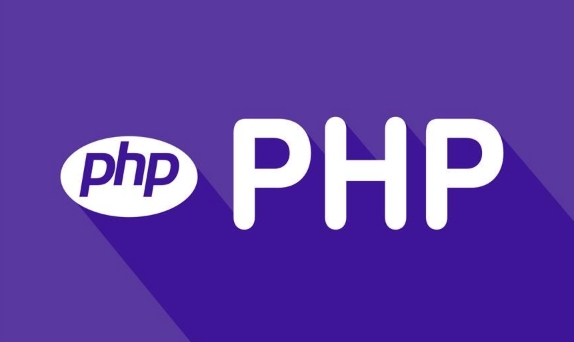PHP can experience memory leaks despite automatic memory management, especially with large data or long-running scripts. 1. Circular references in objects may prevent garbage collection, though PHP 5.3 includes a cycle collector. 2. Large data structures not unset after use can consume memory unnecessarily. 3. Global or static caches that grow indefinitely without limits or cleanup also contribute to memory bloat. To mitigate these issues, developers should use memory profiling tools, break reference cycles manually, process data in chunks, and avoid unbounded caching mechanisms.

PHP handles memory automatically for the most part, which is great for developers who don’t want to manually allocate and free memory like in lower-level languages. However, that doesn’t mean PHP is immune to memory issues — especially when dealing with large data sets or long-running scripts. Memory leaks can still happen, and they can significantly impact performance if not managed properly.

How PHP Allocates and Releases Memory
PHP uses a system called reference counting to manage memory. Every variable in PHP has a zval structure that holds its value and a reference count. When a variable is assigned or passed around, PHP increases the reference count. Once there are no more references to it, the garbage collector marks it for cleanup.
Here’s how it works:

- Variables are allocated memory when created.
- Each time you assign the variable to another name or pass it into a function, the reference count increases.
- When the variable goes out of scope or is unset(), the reference count decreases.
- When the count hits zero, the memory is freed.
For complex structures like arrays and objects, things get trickier. For example, an array containing itself ($arr = [$arr]) creates a circular reference, which older versions of PHP couldn’t clean up automatically. But since PHP 5.3, there's a cycle collector that helps detect and clean up such cases.
Common Sources of Memory Leaks in PHP
While PHP does a decent job managing memory, certain patterns can cause memory usage to grow unexpectedly over time — especially in long-running processes (like CLI scripts or daemons). Here are some common culprits:

1. Circular References in Objects
This is one of the classic causes of memory leaks. If two objects reference each other, and nothing else references them, they should be collectible. But in some cases, especially before PHP improved its cycle detection, these could linger in memory.
class A {
public $b;
}
class B {
public $a;
}
$a = new A();
$b = new B();
$a->b = $b;
$b->a = $a;
// Even after unsetting, memory may not be fully released immediately
unset($a, $b);Even though modern PHP handles this better, it’s still something to watch for, especially when using event listeners or dependency injection containers that hold object references.
2. Large Data Structures That Aren't Freed
If you're processing large arrays or reading big files into memory without unsetting variables or chunking data, memory use can balloon quickly.
For example:
$data = file_get_contents('huge_file.json');
$array = json_decode($data, true);
// Process array...
// If not unset, this will occupy memory until script endsThe solution? Use unset() once you're done with heavy variables, or process data in chunks instead of loading everything at once.
3. Global or Static Caches That Grow Indefinitely
Caching data globally or in static properties seems efficient, but if not limited or cleared regularly, it can lead to memory bloat.
Example:
class Cache {
private static $data = [];
public static function set($key, $value) {
self::$data[$key] = $value;
}
}If you keep calling Cache::set() without ever clearing old entries, your memory usage will just keep growing.
Tips to Prevent and Debug PHP Memory Issues
Here are some practical steps to avoid and identify memory leaks:
Use
memory_get_usage()andmemory_get_peak_usage()
These built-in functions help track memory usage during script execution. Add logging around key parts of your code to spot where memory jumps.Avoid global/static caches unless necessary
If you do use them, implement a TTL (time-to-live) or size limit to ensure they don’t grow indefinitely.Use tools like Xdebug or Blackfire for profiling
These tools help you trace memory allocation and find bottlenecks. Xdebug, for instance, can generate cachegrind files that show where memory was used.Break cycles explicitly
In complex object graphs, manually breaking references (e.g., setting properties tonull) beforeunset()can help the GC work faster.Chunk large operations
Instead of loading all rows from a database query into an array, process them one by one. Same with files: read line-by-line rather than all at once.
Memory leaks in PHP aren’t as common as in manual memory management languages, but they’re definitely possible — especially when working with complex data structures or long-running scripts.
It’s not complicated, but it’s easy to overlook.
The above is the detailed content of How does php manage memory and what are common memory leaks?. For more information, please follow other related articles on the PHP Chinese website!

Hot AI Tools

Undress AI Tool
Undress images for free

Undresser.AI Undress
AI-powered app for creating realistic nude photos

AI Clothes Remover
Online AI tool for removing clothes from photos.

Clothoff.io
AI clothes remover

Video Face Swap
Swap faces in any video effortlessly with our completely free AI face swap tool!

Hot Article

Hot Tools

Notepad++7.3.1
Easy-to-use and free code editor

SublimeText3 Chinese version
Chinese version, very easy to use

Zend Studio 13.0.1
Powerful PHP integrated development environment

Dreamweaver CS6
Visual web development tools

SublimeText3 Mac version
God-level code editing software (SublimeText3)
 PHP Variable Scope Explained
Jul 17, 2025 am 04:16 AM
PHP Variable Scope Explained
Jul 17, 2025 am 04:16 AM
Common problems and solutions for PHP variable scope include: 1. The global variable cannot be accessed within the function, and it needs to be passed in using the global keyword or parameter; 2. The static variable is declared with static, and it is only initialized once and the value is maintained between multiple calls; 3. Hyperglobal variables such as $_GET and $_POST can be used directly in any scope, but you need to pay attention to safe filtering; 4. Anonymous functions need to introduce parent scope variables through the use keyword, and when modifying external variables, you need to pass a reference. Mastering these rules can help avoid errors and improve code stability.
 How to handle File Uploads securely in PHP?
Jul 08, 2025 am 02:37 AM
How to handle File Uploads securely in PHP?
Jul 08, 2025 am 02:37 AM
To safely handle PHP file uploads, you need to verify the source and type, control the file name and path, set server restrictions, and process media files twice. 1. Verify the upload source to prevent CSRF through token and detect the real MIME type through finfo_file using whitelist control; 2. Rename the file to a random string and determine the extension to store it in a non-Web directory according to the detection type; 3. PHP configuration limits the upload size and temporary directory Nginx/Apache prohibits access to the upload directory; 4. The GD library resaves the pictures to clear potential malicious data.
 Commenting Out Code in PHP
Jul 18, 2025 am 04:57 AM
Commenting Out Code in PHP
Jul 18, 2025 am 04:57 AM
There are three common methods for PHP comment code: 1. Use // or # to block one line of code, and it is recommended to use //; 2. Use /.../ to wrap code blocks with multiple lines, which cannot be nested but can be crossed; 3. Combination skills comments such as using /if(){}/ to control logic blocks, or to improve efficiency with editor shortcut keys, you should pay attention to closing symbols and avoid nesting when using them.
 How Do Generators Work in PHP?
Jul 11, 2025 am 03:12 AM
How Do Generators Work in PHP?
Jul 11, 2025 am 03:12 AM
AgeneratorinPHPisamemory-efficientwaytoiterateoverlargedatasetsbyyieldingvaluesoneatatimeinsteadofreturningthemallatonce.1.Generatorsusetheyieldkeywordtoproducevaluesondemand,reducingmemoryusage.2.Theyareusefulforhandlingbigloops,readinglargefiles,or
 Tips for Writing PHP Comments
Jul 18, 2025 am 04:51 AM
Tips for Writing PHP Comments
Jul 18, 2025 am 04:51 AM
The key to writing PHP comments is to clarify the purpose and specifications. Comments should explain "why" rather than "what was done", avoiding redundancy or too simplicity. 1. Use a unified format, such as docblock (/*/) for class and method descriptions to improve readability and tool compatibility; 2. Emphasize the reasons behind the logic, such as why JS jumps need to be output manually; 3. Add an overview description before complex code, describe the process in steps, and help understand the overall idea; 4. Use TODO and FIXME rationally to mark to-do items and problems to facilitate subsequent tracking and collaboration. Good annotations can reduce communication costs and improve code maintenance efficiency.
 Learning PHP: A Beginner's Guide
Jul 18, 2025 am 04:54 AM
Learning PHP: A Beginner's Guide
Jul 18, 2025 am 04:54 AM
TolearnPHPeffectively,startbysettingupalocalserverenvironmentusingtoolslikeXAMPPandacodeeditorlikeVSCode.1)InstallXAMPPforApache,MySQL,andPHP.2)Useacodeeditorforsyntaxsupport.3)TestyoursetupwithasimplePHPfile.Next,learnPHPbasicsincludingvariables,ech
 How to access a character in a string by index in PHP
Jul 12, 2025 am 03:15 AM
How to access a character in a string by index in PHP
Jul 12, 2025 am 03:15 AM
In PHP, you can use square brackets or curly braces to obtain string specific index characters, but square brackets are recommended; the index starts from 0, and the access outside the range returns a null value and cannot be assigned a value; mb_substr is required to handle multi-byte characters. For example: $str="hello";echo$str[0]; output h; and Chinese characters such as mb_substr($str,1,1) need to obtain the correct result; in actual applications, the length of the string should be checked before looping, dynamic strings need to be verified for validity, and multilingual projects recommend using multi-byte security functions uniformly.
 Quick PHP Installation Tutorial
Jul 18, 2025 am 04:52 AM
Quick PHP Installation Tutorial
Jul 18, 2025 am 04:52 AM
ToinstallPHPquickly,useXAMPPonWindowsorHomebrewonmacOS.1.OnWindows,downloadandinstallXAMPP,selectcomponents,startApache,andplacefilesinhtdocs.2.Alternatively,manuallyinstallPHPfromphp.netandsetupaserverlikeApache.3.OnmacOS,installHomebrew,thenrun'bre






